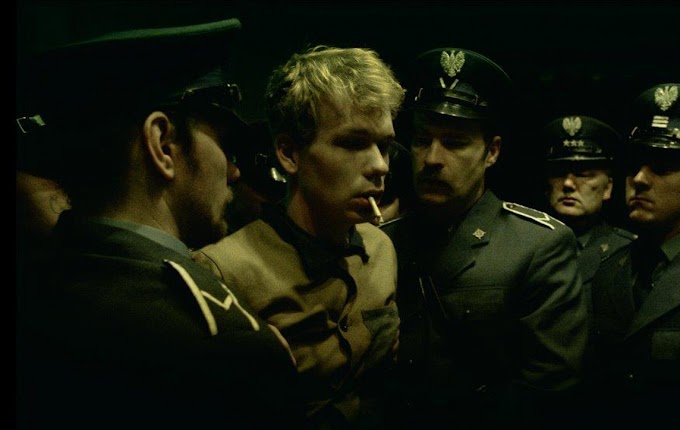The body, as we apprehend it in our contemporary
societies, does not go without saying, insofar as it is the host of mutations
and impulses which only ask to be manifested by piercing (in the proper sense
as well as in the figuratively) the skin of social and scientific conventions.

David Cronenberg has always been interested
in the relationship between man and machine, as well as the relationship
between being and his own flesh, especially in the first three decades of his
filmography, from Shivers to eXistenZ. It is therefore not surprising that he
wanted to adapt J.G. Ballard's prophetic novel, published in 1973, to a period
of heyday of automobile civilization. The discomfort that the book might have
caused is also found in the treatment chosen by Cronenberg, faithful to
Ballard's theme while integrating it into his own universe, in the same way
that the filmmaker had appropriated a literary material of Stephen King with
Dead Zone. Vaughan is a dual character who symbolizes the Western male
fascinated by the automobile and its power, while being drawn to its
destructive power. His necrophilic fetishism for the reconstruction of fatal
accidents of stars (James Dean, Jayne Mansfield) hides an attraction for the
danger of death, while stimulating his sexual fantasies.
In this sense, Vaughan is indeed a
character of Cronenberg, who will act on the future of others like the medium
of Scanners, dark in a progressive madness like the surgeon of False semblants,
and engages in dangerous experiments, such as the scientist from Fly. Those he
meets are then subject to its harmful influence and can only experience a
descent into hell, starting with the jaded and libertine couple wishing to
spice up their existence. Because if the automobile liberates the desires
hidden in the depths of the human soul, it can lead the individual only to his
loss. Never vulgar or touting, despite his synopsis which could have led to the
worst excesses, Crash fascinates by his asceticism, as well as his description
with the scalpel of transgressive rituals. Cronenberg plays neither the
provocateurs nor the moralists, preferring to bet on sobriety and the abyss,
the richness of the footage lending itself to several visions. Helped by the
suggestive music of Howard Shore and the harmonious photography of Peter Suschiyzy,
the filmmaker offers one of his most dizzying works.

However, the film elicited mixed reactions
when it was released, and some have seen it as a succession of erotic sequences
alternating with car accidents. Whistled by a part of the public and the press
at the 1996 Cannes Film Festival, Crash was the subject of a scandal of
circumstance, without however provoking a Hernani battle of the magnitude of the
big feast in 1973. The jury, chaired by Francis Ford Coppola, decided by
granting the film its Special Prize. Finally, we must underline the quality of
the interpretation. Elias Koteas in the role of Vaughan testified to a subtlety
of play, when James Spader resumed the employment of perverse young man beyond
its smooth aspect, seven years after Sex, lies and videotape. Holly Hunter
confirmed after The Piano, her readiness to move in the skin of disturbing
creatures, and Rosanna Arquette, in a too much supporting role, smashed her
consensual image of the 80s.

.png)

0 Comments